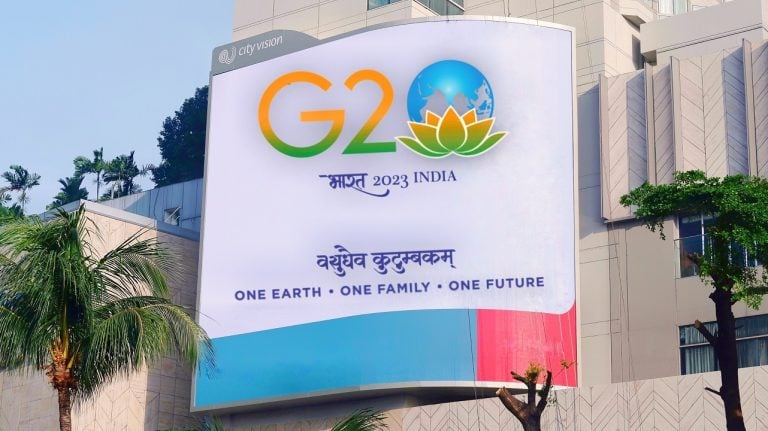
The Indian Presidency of G20 has put forward proposals for a roadmap to introducing a global regulatory framework for crypto assets. India believes a more coordinated policy will be needed to enforce international standards in the field and adequately minimize associated risks.
India’s G20 Presidency Provides Its Input for FSB and IMF Global Crypto Regulatory Roadmap
India, the current President of the Group of 20 forum of the world’s largest economies (G20), has made some suggestions regarding the regulation of crypto assets. With the proposals, New Delhi seeks to help prioritize certain “areas of work essential to achieving a comprehensive, cohesive and coordinated global policy” for the sector.
In a Presidency Note released on Aug. 1, India said that while “considerable work” has been done so far by intergovernmental organizations to prepare regulatory standards for the crypto industry, it believes that more coordination is needed to consistently implement regulations adopted by different jurisdictions.
The document represents India’s input for a Synthesis Paper that the International Monetary Fund (IMF) and the Financial Stability Board (FSB) are expected to publish in the end of August. The latter will feature an overview of the various crypto-related risks and will incorporate a “Roadmap on Establishing a Global Framework for Crypto Assets” which the G20 will consider for adoption.
“The goal of having a global and common roadmap would be to help countries put in place an agreed minimum policy standard for crypto assets which would aim to safeguard nations’ macroeconomic, financial stability and financial integrity,” the Presidency Note explains, adding that beyond that countries may choose to be even more stringent in their regulatory efforts.
India suggests the incorporation of several “action points” in the roadmap to be proposed by the IMF and the FSB in their paper. These include conducting outreach to all jurisdictions to create capacity for implementation, oversight and enforcement of standards, starting first with those that have seen higher crypto adoption and where internationally active crypto exchanges and large stablecoin issuers are based.
“Further, consensus would be built on extending the approved policy and regulatory frameworks on crypto assets to non-G20 member countries,” India highlights. It also calls for continued monitoring of financial stability risks posed by crypto assets by the FSB and monitoring of macrofinancial vulnerabilities by the IMF as well as cross-border information sharing and consumer protection.
The note urges to promote more effective implementation of anti-money laundering (AML) and combating the financing of terrorism (CFT) standards across jurisdictions, following a risk-based approach. India is convinced that these measures should have greater coverage and the Financial Action Task Force (FATF) should report on their implementation directly to the G20.
The Indian Presidency also suggests to establish a framework for providing technical assistance and guidance to regulators and institutions within the mandate of each standard setting body and to monitor the implementation of the recommended standards in each jurisdiction.
Do you think India’s proposals will be accepted by the other G20 members and relevant intergovernmental organizations? Share your expectations in the comments section below.
via Lubomir Tassev

0 comments:
Post a Comment